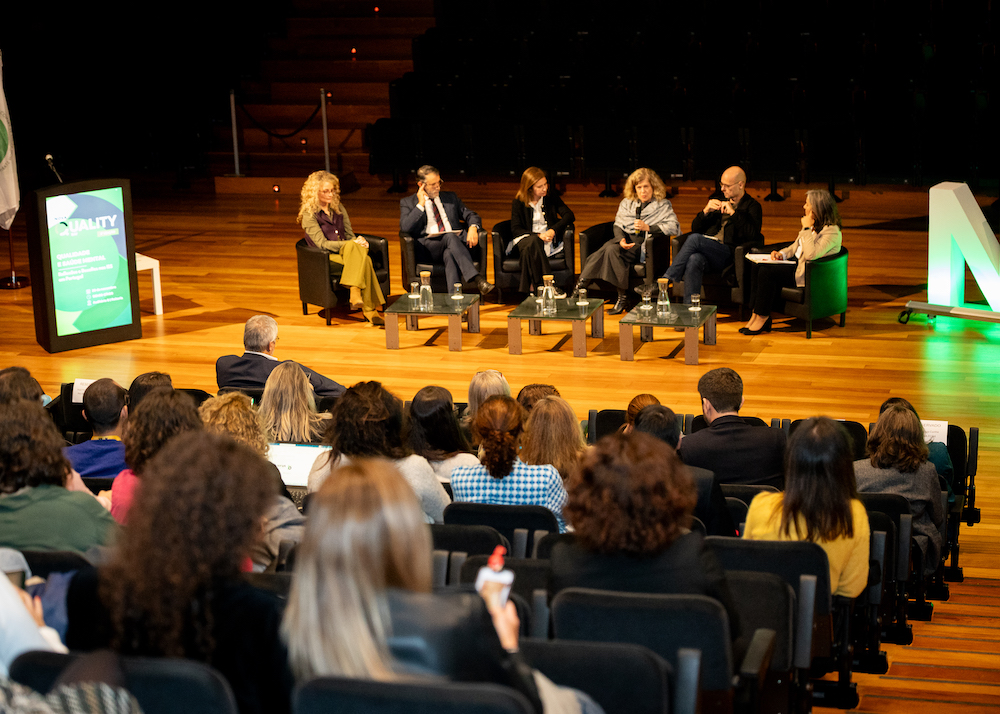The 3rd edition of the NOVA Quality Day, held at the Rectorate of NOVA University Lisbon, focused on a timely and pressing theme: “Quality and Mental Health: Reflections and Challenges in Higher Education Institutions in Portugal”. The event brought together experts, academic leaders, and students to explore how institutional quality impacts mental well-being within universities.
Following two previous editions dedicated to pedagogy and technology, this year’s event took an essential step in reflecting on universities’ role in mental health. As Isabel Nunes, NOVA’s Vice-Rector for Quality, remarked, “this is a topic that concerns us all and demands our continuous commitment.”
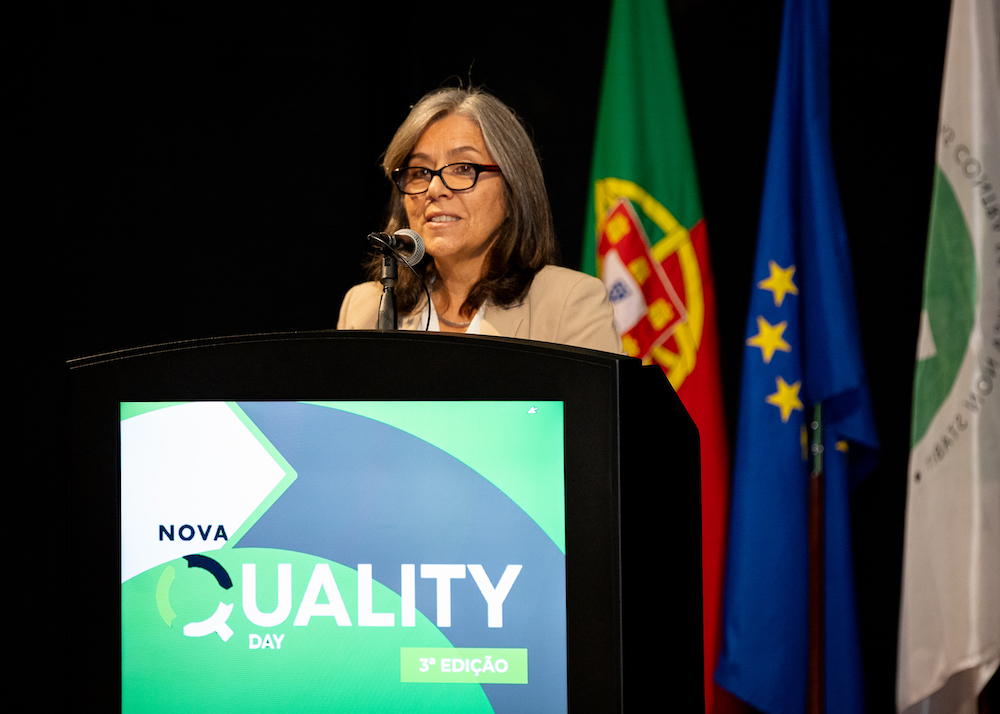
The event featured Miguel Xavier, psychiatrist and National Coordinator for Mental Health Policies, who highlighted the need for a more inclusive and preventive support model:
“Mental health care should be equivalent to other areas of medicine, moving away from the isolation-based models that prevailed for years,” he stated. He also noted the role of the COVID-19 pandemic in “helping to combat stigma and convincing governments to invest in mental health.” However, he cautioned that “the typical ages of university students are those at highest risk for severe mental illnesses, which must be taken seriously.”
Joaquim Gago, head of the Higher Education Mental Health Promotion Programme, emphasised the importance of the academic community staying aware and providing effective, well-known support channels for students: “There is still much to do, but more investment has been made in this area than ever before. It is crucial to equip people with tools to face challenges throughout their lives.”
João Queiroz, president of the Higher Education Accreditation Agency (A3ES), lightened the atmosphere with a thought-provoking anecdote: “I asked ChatGPT what the role of quality systems was in academic success, and it promptly replied that they were fundamental for students, teachers, and graduates’ employability.” This humorous yet insightful comment set the stage for revisiting the advances achieved since the Bologna Process. He stressed, “the heterogeneity in classrooms today is very visible and poses new challenges, but students must take an active role in finding solutions.”
During a panel featuring representatives from various universities, Eduardo Esteves (University of Algarve), Maria José Chambel (University of Lisbon), Eugénia Ribeiro Pereira (University of Minho), José Sales (Open University), and Rita Começanha (University of Porto) shared successful initiatives. Maria José Chambel underscored:
“Regardless of institutional differences – in size or teaching model – we share a common vision of the importance of placing mental health at the heart of academic strategies.”
This was followed by the presentation of the Bandua Programme, which includes representatives from student support offices across all NOVA units. Olga Cunha (NOVA FCSH), Júlia Murta (NOVA FCT), Sofia Cília (NOVA SBE), and Sandra Mateus (SASNOVA) participated in a roundtable moderated by Cláudio Soares, Pro-Rector for Health.
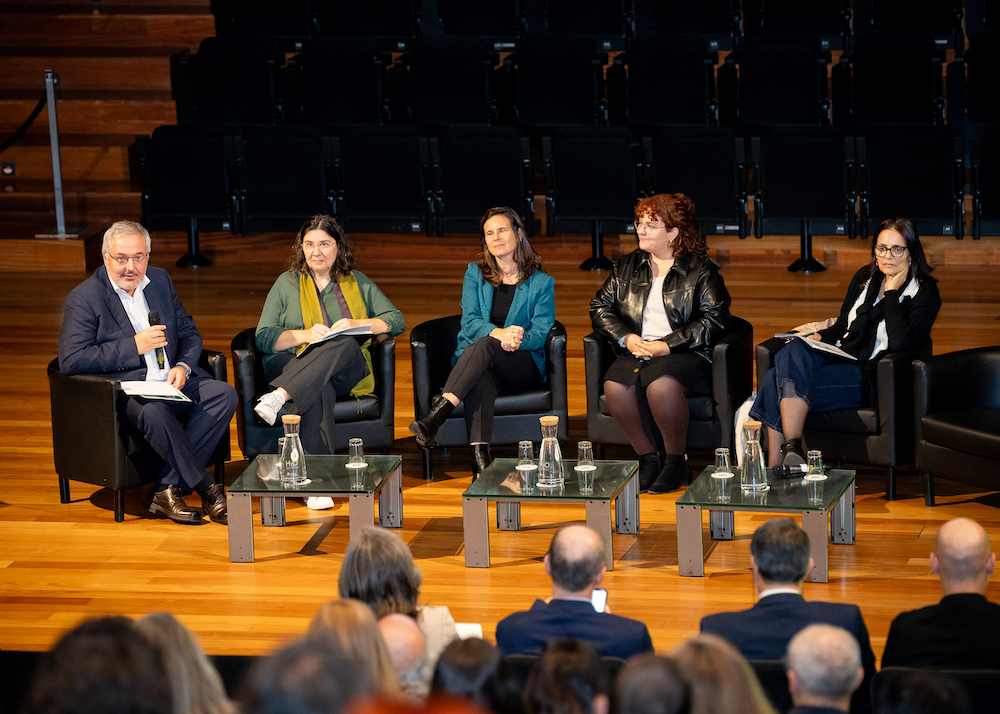
The participants shared initiatives already implemented, ranging from orientation weeks to awareness-raising campaigns. They highlighted the programme’s participatory, networked strategy, integrated with the community and actively involving students.
“Of the 73 planned actions, two-thirds are focused on promotion and prevention because we believe changing the paradigm is essential,” the representatives affirmed.
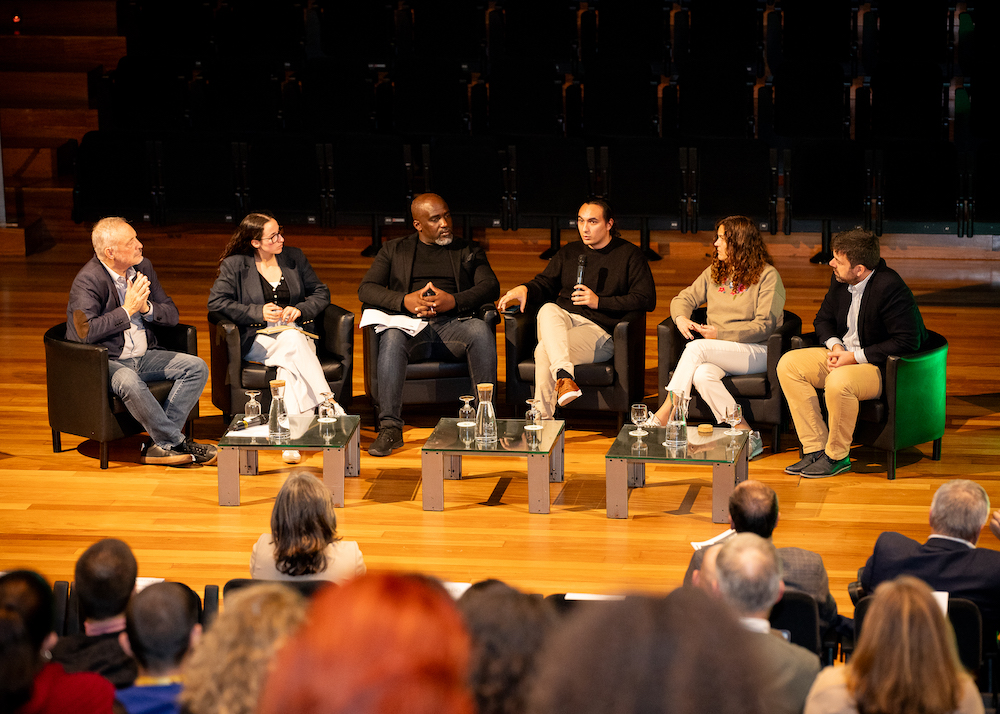
Finally, after the presentation of the NOVA project “Promotion of School Success” by Patrícia Xufre from NOVA SBE and Roberto Henriques from NOVA IMS – which identified the axes in which NOVA invests, including points as diverse as the transition from high school or getting closer to the labour market – it was time for the students to have their say.
The debate was moderated by João Amaro de Matos, Vice Rector of NOVA. Inês Palma, a student at NOVA IMS, stressed that “early school leaving is not a single problem, but is the result of multiple factors that affect the most vulnerable”; Casimiro Massunguine, a PhD student at NOVA FCSH, spoke about the challenges of integration as an international student: “I believed in quick integration when I came from Mozambique, but it wasn’t quite like that”; while Israel Parodia, a finalist at the NOVA Medical School, who admits to belonging to the gypsy community, stressed the importance of university support. “Only 6% of young people from poor families reach higher education and my journey has shown me how crucial this support is to breaking down barriers.”
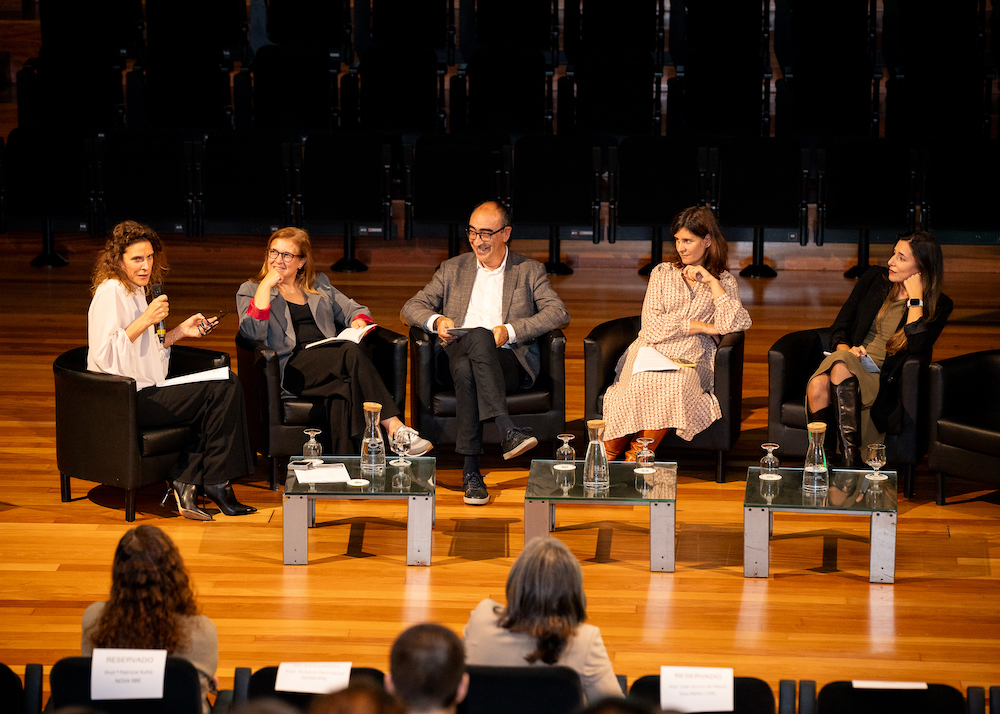
At the end of the event, Ana Sofia Rolão, Human Resources Coordinator at the Rectory, moderated a round table on promoting the mental health and well-being of NOVA employees, with Ana Sanchez (ITQB NOVA), Carlos Carreto (NOVA FCSH), Sílvia Lopes (ENSP) and Mariana Fernandes, representing TEAM 24, to share experiences and reflections on the topic and to present the TEAM 24 project, to which NOVA has joined in a pioneering partnership to support its employees.

